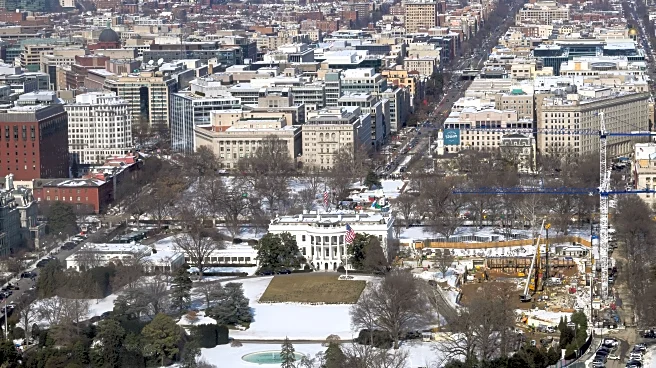What's Happening?
Ahn Hak-seop, a 95-year-old former North Korean prisoner of war, is attempting to return to North Korea from South Korea, where he has lived since his release in 1995. Ahn was captured during the Korean War in 1953 and held as a spy by South Korea. Despite being offered release if he renounced communism, Ahn refused and was imprisoned for life under South Korean President Syngman Rhee's government. In 1995, a newly elected South Korean president pardoned Ahn and other North Korean prisoners, leading to his release. Ahn, who has remained an unrepentant communist, now wishes to return to North Korea to be buried there, although it is uncertain if North Korea will accept him.
Why It's Important?
Ahn's story highlights the complex historical and political tensions between North and South Korea. His desire to return to North Korea underscores the ongoing ideological divide and the personal struggles faced by individuals caught in the conflict. The situation also reflects broader issues of reconciliation and repatriation for former prisoners of war, which can impact diplomatic relations between the two Koreas. Ahn's case may influence public opinion and policy discussions regarding the treatment of former POWs and the potential for reunification efforts on the Korean Peninsula.
What's Next?
Ahn plans to attempt crossing the DMZ on August 20, 2025, despite his chronic lung condition and the uncertainty surrounding his acceptance by North Korea. The outcome of his journey could prompt reactions from both North and South Korean governments, potentially affecting diplomatic relations. If North Korea accepts Ahn, it may set a precedent for other former POWs seeking repatriation. Conversely, if he is denied entry, it could lead to increased tensions and further complicate reunification efforts.
Beyond the Headlines
Ahn's story raises ethical questions about the treatment of prisoners of war and the long-term impact of ideological conflicts. It also highlights the cultural and personal dimensions of identity and belonging, as Ahn navigates his dual identity as a North Korean loyalist living in South Korea. His case may spark discussions on the human rights of individuals caught in geopolitical struggles and the role of personal agency in historical narratives.










